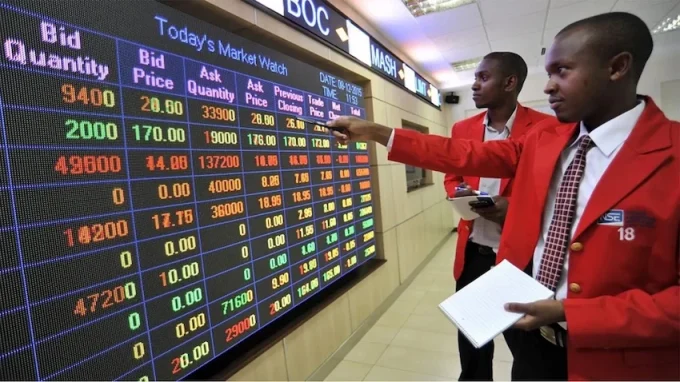Absa Bank Kenya PLC has reported a growth in profit after tax to Ksh8.2 billion for the period ending 30 September 2021 compared to a similar period last year.
Growth in interest income, notably in the small and medium enterprise segment, drove the bank’s solid performance as it stepped up its efforts to help these businesses recover from the effects of Covid-19 and reposition for growth.
While announcing the results, Absa Bank Kenya Managing Director Jeremy Awori attributed the bank’s performance to the strengthening macro-economic environment, quality of credit and resilience in customer operations.
Despite the negative economic effects of Covid-19, all business units remained profitable, registering growth on key lines. Total income increased by 7% to Ksh27.3 billion, primarily due to higher interest income, which increased by 9% year on year due to increased lending. This was however partially offset by margin compression as a result of drops in Central Bank Rate (CBR) whose benefits the bank passed to customers. Non-funded income grew by 5% as a result of our new innovations and digitization, while costs fell by 3% year over year.
Net customer loans increased by 9% to Ksh229 billion, owing to robust year-on-year growth in key core products such as general lending, trade loans, mortgages, and scheme loans. Customer deposits increased by 9% to Ksh269 billion, with transactional accounts accounting for 69% of the total deposit book.
“The pandemic and its negative effects continue to persist, but we have drawn inspiration from our customers to rise above the storm and continue working together to keep the wheels of our economy turning. We are optimistic that we shall make good our commitment to continue innovating and enhancing our customers’ banking experience,” Mr Awori added.
The bank’s costs stood at Ksh12 billion, down 3% year on year due to spend discipline and cost initiatives, which built on previous periods of underlying cost savings. Automation of the processing center and continuing movement of consumer transactions to alternative channels were among the cost-cutting strategies. The savings were used towards long-term investments, particularly in automation and digitization. The firm’s efficiency ratio improved to 44 % of in Q3 2021, down from 49% in the third quarter of 2020.
Impairment decreased by 55% compared to similar period last year reflecting an improving macroeconomic environment for our business and customers. The bank’s average loan loss ratio reduced to 2.0% (4.9% in Q3 2020).
The lender upgraded its Timiza App making it more interactive and significantly reducing the customer journey and consequently, transaction time. Absa also introduced a goal-based saving feature where customers can set their saving target at a certain amount and track their progress.
“As part of our ongoing commitment to innovation, we have added a new feature to our internet and mobile banking platforms that allows customers to view and manage their frequently used debit card functionalities online. These include temporary card freezing and unfreezing, card replacement, PIN setting and resetting, and card withdrawal limit management,” said the lender in a statement.
Absa also announced it is capitalising on collaborations especially in Agency Banking, where it has teamed up with Postbank and Kenswitch to help deliver Agency Banking and ATMs, respectively.
The bank recently concluded a historic Ksh11 billion medium-term note to EABL.
The bank’s total capital adequacy ratio closed the third quarter of 2021 at 17.3% and liquidity reserve position at 39.7% against the regulatory limits of 14.5% and 20% respectively.
“We have been working hard alongside our clients in preparation for a world beyond the pandemic and a more stable economic environment. Our business remains very well positioned to help our customers reposition for recovery. Our capital and liquidity levels are solid to navigate the coming quarters and we are seeing opportunities for growth in our balance sheet with recovery in revenue growth and profits expected. We are confident, at this point in time, to resume payment of dividend at the full year 2021,” said the lender.
Read: Absa Bank Finances Ksh1.2Bn Vehicle Leasing Deal For National Police Service
>>> Absa Group Appoints Sello Moloko As Chairman-designate













Leave a comment